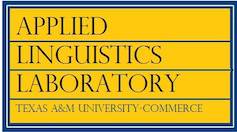Interprofessional learning to enhance Spanish communication skills in Latinx pharmacy students
DOI:
https://doi.org/10.21283/2376905X.15.1.263Keywords:
INTERDISCIPLINARY INSTRUCTION, L2 SPANISH FOR PHARMACY STUDENTS, COMMUNITY-ORIENTED LEARNING, COLLABORATIVE TRANSLATIONAbstract
This case study focuses on an interdisciplinary educational experience in which university Pharmacy and Humanities early and late Spanish-English bilinguals were paired to translate questions related to sociobehavioral aspects of medication use. This work describes the personal and professional benefits reported by the translators and the prevailing themes from verbal negotiations. The participants were an undergraduate in Spanish, seven pharmacy professional doctorate students, and five Hispanic studies graduate students. After completing individual translations, students were paired and met virtually to create a final, collaborative version of their translation. Participants were subsequently invited to answer open-ended questions about their experience. Translators’ transcribed interactions and questionnaire responses became the basis for this article. Results show that the main reported perceived benefit was the participants’ improved language skills. The findings also suggest that length, quality, and richness of interactions depended on whether the members of the pairings exhibited mutual respect, curiosity, and empathy.
Downloads
Published
How to Cite
License
Copyright (c) 2022 Gabriela Zapata

This work is licensed under a Creative Commons Attribution 4.0 International License.


